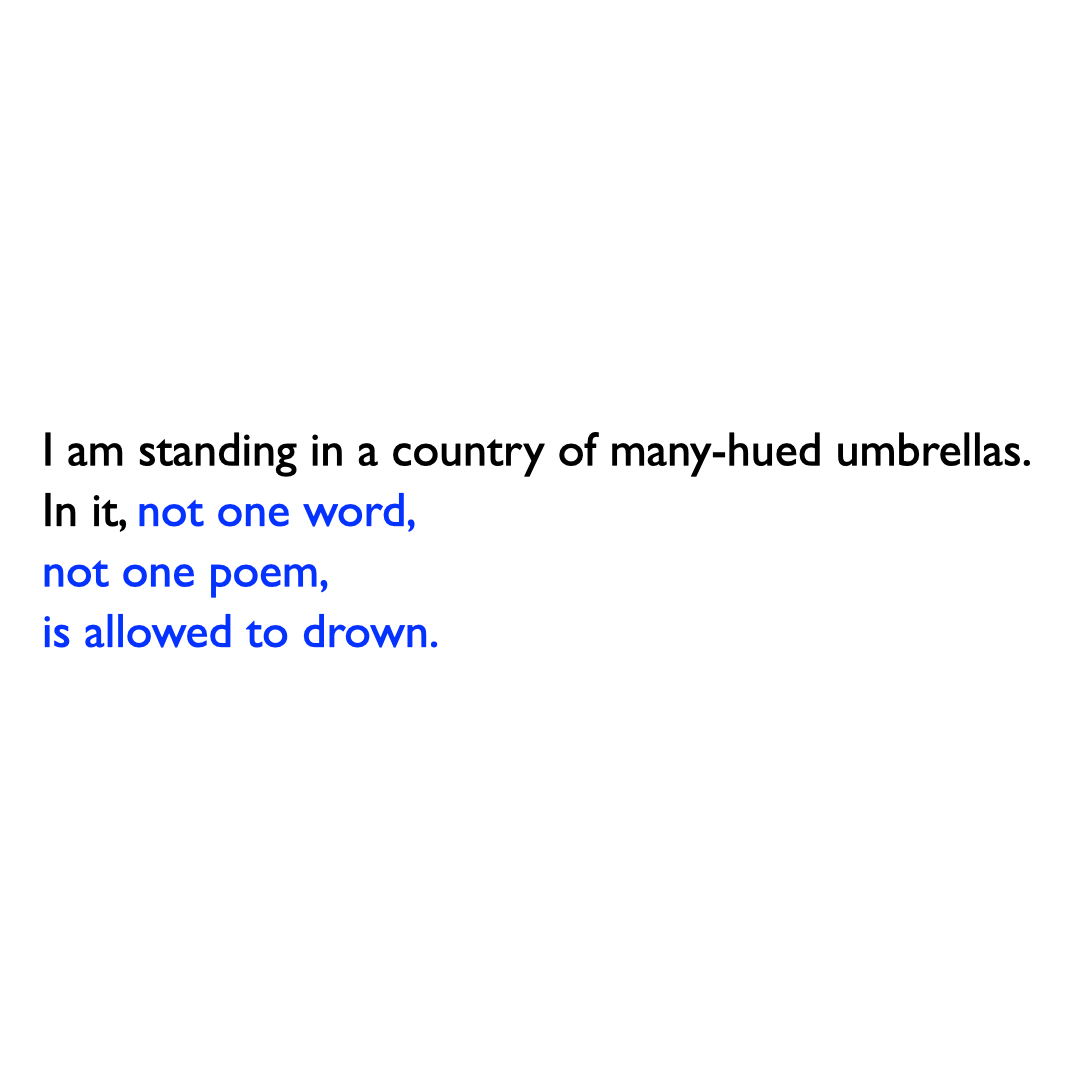Everything Drowns, Except this Poem
K Srilata
Prof. K. Srilata’s poetry has me left breathless. I am still wading through the patchwork green of her fields of absences, the torrid blue of her careful, almost clinical thick description of material presence that explodes into a moment of vulnerable, raw emotion. I’m talking about her anthology The Unmistakable Presence of Absent Humans.
Srilata’s poems have a pace of their own. The words stroll aimlessly the way sunlight makes its tentative way into the city, or they sit alert, with the suddenness of a cat fixing its iron gaze on a squirrel that has just climbed on to the parapet. Each line is a complex universe of feeling or naked image, glimpsed just enough to let the bird of unspoken dream alight gently on the reader’s mind. A picture is painted with tentative strokes, suggesting a landscape that can only be seen up close, that can only be entered with a talisman of personal experience. In this way, then, her poetry is itself an embodiment of the river that flows subterraneously through the collection. It defines without imprisoning, it reminds in the very act of attempting forget. The many disappearances, absences, solitudes are outlined, sometimes by a wistfulness, or a moment of understanding, that has been brought on by the privilege of retrospect.
Writing with the honesty of profoundly felt experience, her visions converse with other artist from other times, and characters from other myths. This glorious cross-pollination is another thing that endears me to this collection. To find Bosch staring back at you from the folds of a poem, or Dickinson laughing quietly behind a muslin sheet of metaphors, is strangely exciting. It is a conversation, after all, that we are witness to. In A Woman of Letters, I felt as if she was speaking to Virginia Woolfe (around the time she was preparing her lectures that would become A Room of One’s Own), who was nodding her fervent agreement:
Sometimes, all I want to be is a woman of letters,
Between chores, the very idea makes me weep.
In Not in the Picture I felt as if she was speaking to my mother. I’ve encountered very few poems that have this lightness of touch and this patience, and thingness of mountains.
She explores absences of different kinds. The words scaffold a gendered reality, conflict, state repression, family, motherhood, social pressure, language, culture and the straitjacket of tradition. But one thing that I love is her unabashed deep dive into the act of writing and poetry itself. Many poems talk of the moment of creation - its impossibility, its simple yet mysterious way. Her poems don’t overwhelm with images, rather, they linger around a scene of abstract strokes and colour, making determined arcs into the disappearing frame, drawing out form from the ageing wood of memory.
The poem I share with you today is about writing, it’s about the India we live in, the India we desire, it’s about stifled voice, and about not being to able to stifle a voice.
“Something keeps trying, but I'm not killed yet.”
- From Jericho Brown’s Psalm 150



